Identity by William Tekede
 Abisha’s hostility and careless utterances were a sleaze that cracked Julie. His sudden outbursts were triggered by misunderstandings between his wife and his sister Julie. The hostility exhibited by Abisha that afternoon led to several scuffles between the two of them, which sucked in their aunt, uncle, and their father. The war of words that erupted between brother and sister proved difficult to quell. For Julie, the few weeks that followed the death of their mother, Chenayi, had been a roller coaster. She had had many sleepless nights pondering over her seemingly bleak future.
Abisha’s hostility and careless utterances were a sleaze that cracked Julie. His sudden outbursts were triggered by misunderstandings between his wife and his sister Julie. The hostility exhibited by Abisha that afternoon led to several scuffles between the two of them, which sucked in their aunt, uncle, and their father. The war of words that erupted between brother and sister proved difficult to quell. For Julie, the few weeks that followed the death of their mother, Chenayi, had been a roller coaster. She had had many sleepless nights pondering over her seemingly bleak future.
Julie had noted with disgust the increasing hatred between her and her brother Abisha since the death of their mother two months ago – she had succumbed to cervical cancer. After the scuffles of that afternoon, Julie concluded that if the death of their mother had left her this vulnerable, then there was no reason for her to stay any longer. She deeply felt that her relationship with Abisha had gone down to the wire.
She quickly packed her bags and threatened to leave. Only intervention of their aunt, uncle, and father, helped her to stay overnight and see the memorial service through.
When, Julie walked out of the homestead in the early hours of the following morning. She didn’t say good-bye to anyone. Nobody knew where she had planned to go. They all assumed that she was going back to Kariba; where she had been renting a room prior to the death of their mother. Her aunt Muchanyara tried to find out where she was headed. Julie had told her point-blank, that she was following the wind.
She found herself waiting at a bus stop along the Harare-Kariba highway; scratching her head with a wooden hair pin wondering what to do next, or rather where to go from here. At first she thought of going to Kariba just as everyone had guessed. But on second thoughts, she decided against taking that route for no apparent reason.
While she was still suffering from indecision and tossing a coin in her mind wondering where to go, the sound of a horn startled her. It came from a black BMW with tinted windows that had stopped to pick her up. Julie quickly jumped into it thinking that she was going to Kariba. She only realised that they were travelling in the opposite direction when the driver asked her how far she was going. She looked straight ahead and did not even turn to face the enquirer when she responded. “I’m going to Kariba and you may drop me off at Makuti turn if you are going straight to Zambia via Chirundu”.
“Sister, you are not serious, how is that possible when I am driving to Harare?”
Julie quickly turned her head, and looked directly into the eyes of the young man at the steering wheel. She had her mouth wide open but no words came out, she only managed to place her palm over it. That’s when she realised that she had been standing on the wrong side of the road.
Her stare almost sent the car off the road. The young man was not sure whether he was frightened by Julie’s seriousness, or stunned by her beauty, when he had taken that dangerous swerve. He decided to act gentlemanly. “I’m so sorry sister. This road is in a very bad shape and full of pot-holes. The one I avoided is actually a fish pond.”
“OK, you can drop me in Karoi,” she said.
He was relieved but his relief was short lived. At that moment, they were already 5 km's out of Karoi and Julie hadn’t noticed. The young man gathered his courage and said, “We are already 5 km away, and we are not moving but cruising my dear sister.”
Julie responded with a soft, “Oh my god...”
“Don’t worry much, I can drop you at any place of your convenience,” said the young man, and added, “But if you don’t mind, I am driving to Harare today, and tomorrow morning I will be on this road on my way to DRC and I can take you to Kariba then.”
What followed after was an exchange of introductory formalities, and after a brief talk about current political and social issues, Julie politely asked Yakubu to excuse her so she could take a nap. Her request was granted with due respect and soon she was asleep.
Yakubu took the advantage of her sleeping to study her very closely. He didn’t need a qualified beauty therapist to convince him. Julie was immaculate, a stunning beauty to say the least. But he remained worried. Each time he looked at her, he couldn’t help it but summoned all the cells in his body to nod and say a soft 'beautiful'. But, what frustrated him a bit was the fact that no matter how much he had tried, he failed to understand Julie’s mental state. Even as she remained asleep she still looked troubled. She could be a wounded tiger at heart, but for Yakubu it was love at first sight.
In that deep sleep Julie had a dream. She was taken to a vivid memory of an incident that took place at a borehole in the jungles of Hurungwe in mid-October of 1972; when she was a tender six years old. It was an incident which had made a lasting impression.
After having arrived at her grandmother’s place in the middle of the night before, she found herself queuing for water in the early hours of the following morning with an old battered two-litre Juice container. Julie’s mother held her hand and carried a twenty-five-litre tin with her other palm pushed against the brim as it swung with the motion of her walking.
Multitudes of people had already gathered to fetch the precious liquid. Water shortages were at the peak in that year of terrible drought. It was the only borehole serving their community. As soon as they arrived, the eyes of all present were transfixed on her. Julie had grown up at Mhondoro Farm and had never attracted such attention in her life. A very old woman asked “Ko kaMurungudunhu kekwaani aka?”(Whose Half-White kid is this?), but there was no response.
That remark was archived in young Julie’s mind. Later in life Julie had grilled her mother to explain that word Murungudunhu. This her mother did though with some difficulty. During her narration, a cat had leapt out of the bag and there was pandemonium in the hearts of mother and daughter. But at the end of it, mother and child embraced as they shared their sobs in grief. Those tears cemented a very strong bond between them, a bond that even the death of her mother failed to break.
Julie woke from that deep slumber, only to find herself being ushered into a beautiful house in the Harare city suburb of Sunningdale, as she wiped away the tears from her dream.
“Welcome to my place Julie. Don’t feel at home, but be at home.” With those few words, Yakubu disappeared into one of the many rooms of this house and came out after a few minutes. He headed straight to the refrigerator from where he retrieved a very cold soft drink that he placed on the table together with a drinking glass. He offered Julie the drink without the courtesy of asking her what she wanted. He looked at her, smiled broadly and said, “Enjoy your drink, relax and take care. I will see you soon.”
Julie only summoned a weak smile and waved goodbye as he headed for the main door. After he was gone, Julie stretched her hand, grabbed the soft drink and emptied the contents to the brim of the glass but didn’t drink. Instead her attention was caught by the book that laid on the table, titled, 'The Prisoners of Jebs' written by Ken Saro-Wiwa. She absent-mindedly found herself flipping randomly through its pages and ended up reading this statement.
'When a people are confused and lack confidence in themselves and in each other, they are likely to undertake foolish adventures.'
Julie immediately stopped reading and thought about her journey to Harare in Yakubu’s car. Her heart pounded very fast as she realised that she had put her life into the hands of a stranger and was now shivering. She cried a few tears, but soon she fell asleep; the many sleepless nights and exhaustion had caught up with her.
Yakubu meanwhile had gone to check on his small shop that he hand recently opened at Market Square, otherwise now known as the Chinese Complex. It was an outlet for footwear, electric gadgets, and cosmetics. “Hello Joseph, how is business my friend?” He greeted and enquired from his salesman.
“Business is good. Those jeans from DRC are hot. They were sold out yesterday afternoon,” Joseph replied.
“You are not serious. That sounds too good to be true. Thank God. OK, fine, let’s talk about that this evening,” he said and walked out the store. He had a personal meeting with his salesman later that evening.
Yakubu passed by Pizza Inn and bought a large pizza, two half chicken pieces, and two large chips, to take-away and drove home.
When he entered his house, Julie was still on the sofa, asleep where he had left her seated in the spacious lounge. Yakubu noticed a glass on the table was still full, in his mind he thought and concluded that this lady must be a sick woman. However, he went on to very cautiously awaken her and they ate lunch together.
Julie took this opportunity to appraise Yakubu about her life, and the appraisal was received with lots of sympathy. Yakubu asked her to stay with him while she recuperated from her nasty differences with Abisha. Julie thanked him and agreed to stay.
One day two weeks after their arrival in Harare, Julie and Yakubu were having their super when he decided to once more broach his thoughts of marriage. He had just arrived from his travels, and had a golden chain and a diamond ring concealed in the pocket of a brand new shirt he had bought in Dubai. He started by saying, “This country is beautiful, I wish I can stay here longer or forever.”
“So why can’t you?” Julie responded.
Very quietly he slotted his hand in his pocket, retrieved the concealed contents, slowly handed them over, and said with a smile, “Marry me and I can simply pay a deaf ear to the political events taking place here and stay. Julie… would you marry me?”
It was the third time he had asked in two weeks. Julie considered his request once more and found no reason to turn down his offer. Yet there was only one thing nagging her. It was a big stumbling block. It was her identity. Her own brother had rejected her for it. The scuffles of that afternoon came back to her mind and found no reason why Yakubu would not do the same later on. “Yakubu, you are a generous and good man, but I am sorry I can’t marry you,” Julie said this for the third and last time, she hoped.
Though they talked about it late into the night, Julie never changed her position, but did agree that she would try and find him a suitable woman to marry. Julie accepted the golden chain and Yakubu kept the diamond ring. He in return offered her employment in his second shop that he had recently established at Xmax Mall opposite the Harare Central Post Office.
One Saturday, Julie thought of visiting ABC Auctioneers near Arcadia Shopping Centre. Two days before she had found a room to rent in the Arcadia suburb and needed to buy furniture and other household utensils. Yakubu had given her a substantial amount, enough to cater for her three months rentals in the most expensive up-market suburb of Borrowdale. Her domestic chores were another sinecure. Her weekly wages gave her an added advantage. But, she needed to save money for her unknown future requirements.
Yakubu had dropped her at Arcadia Shopping Centre on his way to Chitungwiza. She strolled down a side lane that led to the auction floors, and once inside bought quite an assortment of goods that included a double bed. These were then delivered to her home by two teenage coloured boys driving an old fashioned pick up truck. This was all against Yakubu’s advice; he wanted her to stay with them. Although Julie had never requested any money from Yakubu, she realised that she had been a constant drain on his financial resources. She had become a gluttonous monster that constantly had to be fed, even if Yakubu never seemed to mind at all.
By all standards, Yakubu was very successful. His success was something that could not only be linked to the two shops he was running. One manned by Joseph at Chinese complex and the other by Yakubu’s new wife Monica and Julie at Xmax Mall – Monica and Julie were old friends from Kariba. In the few weeks she had lived with him, Julie had established that Yakubu was politically very well connected. Most of his political friends visited him at night. He would quickly usher them into his sanctum. There they would stay a few minutes before they said good-bye. It was the same routine with several high ranking police officers and successful business personalities. The number of visits and visitors significantly increased each time Yakubu had visited Chief Chiadzwa’s fields in Marange. However, Julie had her own problems to take care of and with that in mind she remained un-bothered by these comings and goings. But after Yakubu bribed a Marriage Officer and married Monica, Julie felt that it was proper for her to leave them to enjoy their marriage, while she went on to enjoy her new independence.
At her new residence in Arcadia, Julie befriended a woman called Joanne and some of the other tenants. They were mostly young couples who drank heavily, were chain smokers, and always fighting with each other. At first she felt disturbed and wanted to leave, but she found comfort in their oneness, a sense of shared identity. When they sat down to narrate their histories, they found out that they had a lot in common. They were all products of illegitimate sexual relationships, and this made Julie want to stay as she had found herself a new family.
Her new family members seemed to be more informed about their roots. Something in Julie told her they could prove to be handy in the long journey to establishing her true identity. In no time, Julie found herself making numerous errands to the National Archives of Zimbabwe accompanied by Joanne. Here they met a whole bunch of other people in similar predicaments, and others researching on many different subjects. Popular subjects researched on included deceased estates, citizenship and title deeds, to name just a few.
During their first few visits, Julie was put off by the routine of having to fill in their personal details in a number of registers every day. Filling in request slips was another bore, but she later learnt that these were necessary routine inconveniences. At first she would often have problems with staff wanting to do things their own way. She thought that they were being treated unfairly and concluded that it was because of their identity. However, Julie vowed to follow every instruction religiously. She was determined to uncover something about her past that was hidden in the mass of published and unpublished documentary heritage, housed in the archives. Her search seemed like it was a wild goose chase, and was made difficult by the fact that she had very sketchy information about her real roots.
After weeks of fruitless searching, she felt she had come to a dead end. Very often she had heard staff members referring to researchers of her kind as 'troublesome and confused noisy gold diggers'. It may have been true in certain circumstances. But in her case, she took it to be a misconception and an uncalled for malicious insult. She felt deeply hurt but could not let such pain distract her.
Frustrated by the time she had spent digging through old dusty files, and sitting in front of the micro-film reader viewing deceased estate records, Julie walked out of the reading room. She ignored the lady Control Desk Officer on duty, but noticed someone through the big glass used by staff as an observation post. It was a fairly old male officer who seemed to be more receptive and more helpful. Going by the laws of magnetism, Julie was naturally attracted. Though this man was crowded by other researchers, Julie waited for her turn as the man dug into several catalogues.
“Sekuru, help me find my father’s record, please. His name is Murefu (Tall man).” Little did she know that she had made an appeal that brought her short lived joy? “I am a product of the shit that came out of two people who were having a nice time,” was another self-depreciating statement she added to her introduction.
“I understand your frustration and where you are coming from. Try and forgive those guys. The Miscegenation Act worsened the situation,” the old man responded.
“What’s that?” Julie enquired.
“It was an Act, a statutory instrument that prohibited racial inter-marriages between blacks and whites,” said the old male officer.
“Oh! Bastards, they crafted that and went on to screw our mothers and then disowned us,” Joanne, Julie’s friend belted from behind her.
After probing for a bit more information and calming them down, the officer told Julie and Joanne to wait while he went to check for information in the library. They watched him go down a passage and disappear into the library. When he came out a few minutes later, he was holding two old books in his hands. One was a very large telephone directory and the other was a small one. Julie and her friend wondered what game this man was playing with them. They had been used to seeing voluminous things, be they books or files. In the smaller book he had found a list of District Commissioners which showed their pseudonyms also. Five of them shared the pseudonym, ‘Murefu’. They were dotted around Rhodesia’s districts. One of them was a District Commissioner in Lomagundi. His real name was T. F. Drier.
In the old directory, there were short biographies of T. F. Drier, and T. F. Drier, Jnr. The senior Drier was said to be a retired District Commissioner and a renowned farmer who owned farms around Sinoia. The younger Drier was a District Commissioner who had been stationed at the Karoi District Office and also owned farms within the surroundings.
It was only now that Julie recalled the name Drier. She had seen the name pencilled on a receipt her father, Paradzai, had been issued when he bought a singer machine from his boss at Mhondoro farm. That receipt was in a family archive her family had kept over many years. She kept this information in her heart as they waited to see what the old man would do with information he had in hand.
They watched again as the officer this time went up the corridor, reached the end of it, turned right, and disappeared. He was accompanied by a Senior Office Orderly. The two spent more time in the repository than he had spent alone in the library. When they finally reappeared, the orderly was pushing an intimidating trolley full of boxes of files and some old books. The old officer was carrying one fairly old thick file in his hands.
“Oh! My God, not all that again,” remarked Julie and Joanne in chorus. But all the same, Julie had flexed her muscles and brace for the impending challenge. She was encouraged by her heuristic learning.
Some time later, when Julie felt exhausted, and wanted something light to read, she ended up reading articles published by Salisbury Publicity Association. They chronicled the deplorable ill-treatment of African domestic servants by their masters. She realised that many bad, very bad, things had happened, and her own mother had been such a victim. Even though she was not privy to details of the abuse her mother had suffered, she had been born as a result of such ill-treatment. She had long harboured a grudge against her mother over her birth. Julie was the eldest out of two brothers and six sisters that made up their family. She was the only one with a different pigmentation. The ordeal her mother suffered was a result of Senior Drier’s visit to his son‘s Mhondoro farm. Chenayi was working there as a domestic servant. Julie’s father, Paradzai was employed as a tractor driver.
The Driers had had a party that saw her doing dishes until very late that night. Everyone had gone to sleep. Senior Drier in a drunken state had summoned her to the visitors’ room. It was there where she was viciously raped. The incident left Chenayi in vertigo and confusion that lived in her heart traumatised for many years. Nine months down the line the resuting baby was delivered in a small grass thatched hut they called their kitchen. What Chenayi brought forth on planet Earth was a coloured girl they named Julie. She was lucky to have been allowed to live. If she had been born in other communities, she would have never seen the light. Such kids were considered a cultural curse. If Julie had been born in such communities she would have been terminated and buried in the shortest possible time. Only a few, very old women would have witnessed her burial in a shallow grave along the banks of the nearest river.
Paradzai had made Julie’s birth an issue but was convinced by elders to accept responsibility. African tradition says if one is pregnant and hates someone, then she is likely to deliver someone who looks like the much hated one. From that day on, he accepted Julie as his own offspring and treated her like any of his other kids.
When she finished reading those terrible stories, Julie bowed her head down, silently made a little prayer and asked God to forgive her mother for the second time.
After her ordeal, Chenayi had reported senior Drier to his son and that was the end of the story. Senior Drier went into town the following morning and bought her new pants as replacement for the one he had destroyed. The gift of six new pants had been delivered as if they were a benefaction and yet they were an appreciation for rape, disgusting. Her boyfriend Paradzai was then promoted to Head Driver.
A few days after her ordeal, Chenayi consulted Ambuya to regain her vaginal tightness. Ambuya was renowned for the use of traditional herbs and did the assignment very well. Thus Chenayi had regained her lost virginity, and thereby successfully covered future eventualities. When she played intimate games with Paradzai that same week she bled to his delight. When she eloped three months afterwards the objective had been met. It was an abominable way of getting married but was culturally very much in order. Ambuya’s herbs were traced to have been the cause of the cervical cancer that later killed Chenayi as she had continued using them in her life.
In the file that was brought out of the repository, they found out that Senior Drier had died at St. Andrew Fleming’s (now Parirenyatwa) Hospital on 26 September 1968. Coincidentally it was the same day Julie celebrated her 2nd birthday. Junior Drier was killed in action in 1978 at the height of the liberation struggle. Among Senior Drier’s deceased estate record was his final will he had written shortly before his death. Julie had been appointed heir to Blackberry Farm in Sinoia.
When Senior Drier had visited his son, the main purpose was to celebrate his new acquisition. He had added another farm to his wealth. It was this farm he bequeathed to Julie. He had named this farm in honour of Chenayi. It was their favourite farm and the family lived there. When he died, senior Drier’s remains were buried there.
The morning that followed Julie’s discovery was an exciting one. Joanne, her other two friends from Arcadia, Monica, Yakubu, and herself drove to Chinhoyi. It was a team of six gallant fighters who went there and never fired a single bullet. On arrival they met an old and frail Mrs Jane Drier who confirmed Julie’s claim. She told them that Julie was supposed to have taken over the day she turned 18 years. But she did not know where to find Julie and she apologised for her failure to communicate. It was a convenient lie. She asked Julie to allow her to finish off the harvesting that was going on before she could officially hand over the farm. Julie had no intentions to settle. She had planned to sell the property and then go and live in UK. The late Drier’s estate had confered her with British citizenship status that she could now claim from the British Embassy in Harare.
A few months later, Blackberry farm was invaded by supposed war veterans of Zimbabwe’s liberation struggle. It was at the height of land re-distribution that had been marked by the marching of Chief Svosve’s people several months back. Julie lost her recently acquired inheritance. Blackberry farm remains a berry that she never chewed. That night she woke up in darkness and knelled down and prayed.
“Kuna baba vangu Paradzai, zvedi makaparadzwa sezita renyu. Amai vangu Chenayi, makachenamwoyo sezita renyu (To my father Paradzai, just like your name implies you were indeed robbed. To my mother Chenayi true to your name you are a good hearted woman). To Abisha my brother, I now fully understand and respect your conviction and sentimental feelings about our relationship, may you be forgiven. To Yakubu, may you be blessed for your generosity?”
At that juncture, she remembered that statement from Ken Saro-Wiwa’s ‘Prisoners of Jabs’, “When a people are confused and lack confidence in themselves and in each other, they are likely to undertake foolish adventures.” She took a heavy sigh and concluded her prayer. With her eyes fixed at the rafters inside her room and a piece of wire in hand, she concluded her prayer, “To Senior Drier, I’m sorry I can’t continue praying for my throat is stone dry.”
Identity was written by William Tekede.
Copyright © William Tekede 2011.
 William Tekede was delivered on 16 June in the winter of 1967. He was born in the round pole and dagga hut, the family kitchen on Welcombe or Boss Mhosi’s farm which lies west of Karoi town along the road leading to Magunje Growth Point. The farm was popularly known as Mhondoro Farm.
William Tekede was delivered on 16 June in the winter of 1967. He was born in the round pole and dagga hut, the family kitchen on Welcombe or Boss Mhosi’s farm which lies west of Karoi town along the road leading to Magunje Growth Point. The farm was popularly known as Mhondoro Farm.
In 1973, William started his primary education at Sengwe Primary School. This was after the family had left farm employment and resettled under chief Nyamhunga in the Hurungwe Tribal Trust Land. One Thursday afternoon in June 1978 the school was closed down at the height of the liberation struggle. This development saw William out of school for two years until 1980 when he resumed his education and enrolling for grade six at the same school. After completing grade seven, I then went on to do my secondary education at Pakame Secondary School in Shurugwi from 1982 to 1985. I enrolled to study Librarianship at Harare Polytechnic College from 1987 to 1989 and went back to further my studies from 2002 -2003. I worked in the Ministry of Home Affairs, Department of National Archives of Zimbabwe from June 1990 to September 2006. After 16 years of continuous service at the Archives, I relinquished my position as Acting Chief Librarian and joined National University of Science and Technology in Bulawayo in the city of kings on 2nd October 2006. In June 2008, I was seconded to run the newly established Graduate School of Business Library (GSB) where I am currently working as the GSB Librarian.
Discovering my potential as a writer came about while I was in secondary school. I used to enjoy writing shona poetry which captured the interest of my subject teacher as well as that of my classmates. This interest was watered down by lack of opportunities to publish until late 1990s when I started writing in English for the National Archives newsletter. That experience was a stepping stone. Before this, I used to write a lot in shona until one day I decided to take some of my works to Mai Chisamba. I remember visiting her at the Examinations Branch in Mount Pleasant and my works instantly captured her attention. This visit led to the canned broadcast on ZTV (AM Zimbabwe) of my presentation of one of my shona piece titled “Munhu hunhu” towards end of 1999. That experience was a great motivator. But due to pressure of work at the time I slithered. One day in 2004 some primary school children visited the National Archives to research on one of our national heroes as a school project. It was embarrassing to note that there was very little information available. It was then that I decided to write an article urging Zimbabweans to consider depositing historical material with the Archives. Fortunately it was published in the Herald on 15 September 2004. I followed up on this one with another one which was also published in the same paper on 23 September 2004. A few more others followed suite. That marked the beginning of my relationship with the press.
When I moved to Bulawayo in October 2006, I continued writing and sending my contributions to Chronicle and most of them are published. I enjoy doing this as a public/social service. Sometime in 2007, I received an e-mail from an ex-workmate at National Archives now living abroad who is a renowned author at Storytime informing me about her publications. When I started reading Sarudzayi Chifamba-Barnes’s works on the internet, my interest to write short stories was re-activated. I wrote three which I sent to Ivor W. Hartmann without expecting much out of it. But when he responded inviting me to join storytime authors, I felt like it was a call for me to unleash whatever was hidden under the screen of my intellectual stone. I feel being published on storytime is a result of my retrospective desire to become a writer that I have turned out to be and think that I can express myself much better in poetry. For now I think I will concentrate in this area and will strive to continue writing verses in English and Shona.


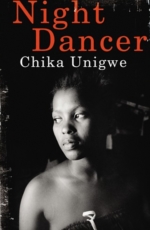

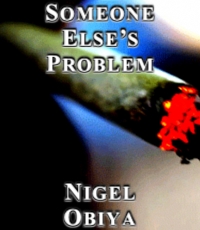

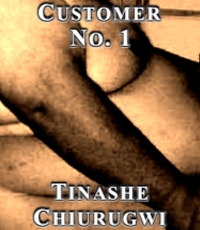
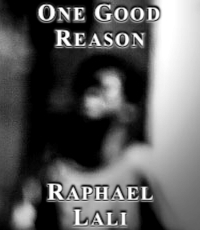
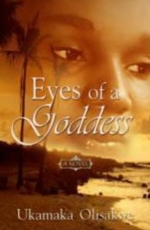

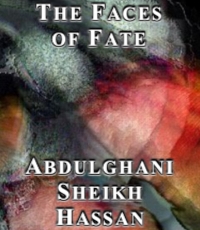

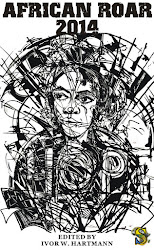
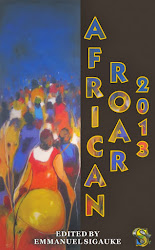
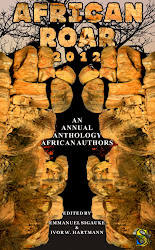

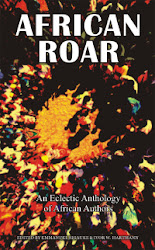

4 comments:
This is an incredible story. I'll be featuring it today at FictionDaily.org. Is there a way to get in touch with the author to do an interview?
Happy you enjoyed it David. Sure drop us an email, and we'll take it from there.
I am delighted that you enjoyed this one David. The feature you did on it is inspiring.
wow this is a touching story its actually encouraging to those with lost identity and those who have low self esteem.....I'm inspired
Post a Comment